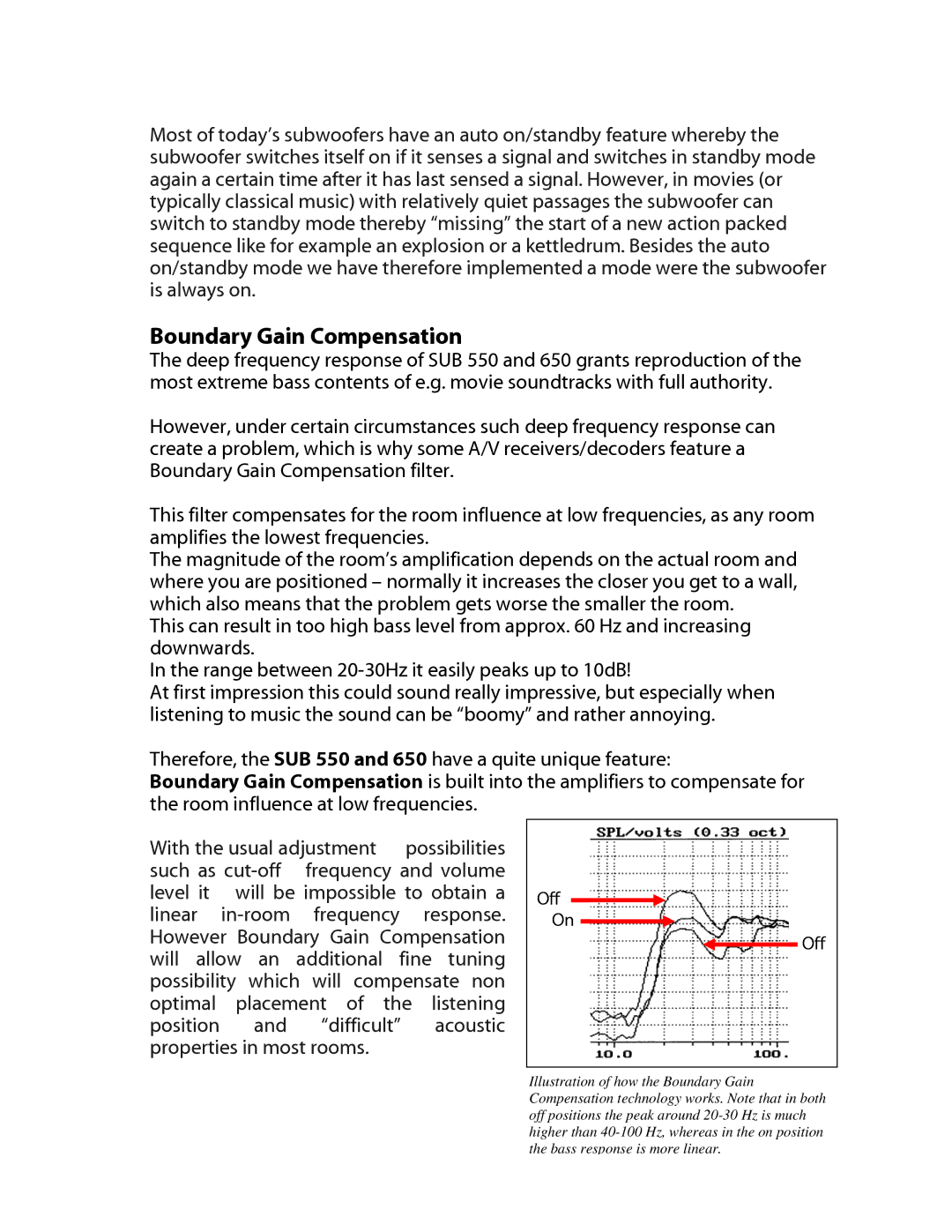
Most of today’s subwoofers have an auto on/standby feature whereby the subwoofer switches itself on if it senses a signal and switches in standby mode again a certain time after it has last sensed a signal. However, in movies (or typically classical music) with relatively quiet passages the subwoofer can switch to standby mode thereby “missing” the start of a new action packed sequence like for example an explosion or a kettledrum. Besides the auto on/standby mode we have therefore implemented a mode were the subwoofer is always on.
Boundary Gain Compensation
The deep frequency response of SUB 550 and 650 grants reproduction of the most extreme bass contents of e.g. movie soundtracks with full authority.
However, under certain circumstances such deep frequency response can create a problem, which is why some A/V receivers/decoders feature a Boundary Gain Compensation filter.
This filter compensates for the room influence at low frequencies, as any room amplifies the lowest frequencies.
The magnitude of the room’s amplification depends on the actual room and where you are positioned – normally it increases the closer you get to a wall, which also means that the problem gets worse the smaller the room.
This can result in too high bass level from approx. 60 Hz and increasing downwards.
In the range between
At first impression this could sound really impressive, but especially when listening to music the sound can be “boomy” and rather annoying.
Therefore, the SUB 550 and 650 have a quite unique feature:
Boundary Gain Compensation is built into the amplifiers to compensate for the room influence at low frequencies.
With the usual adjustment possibilities such as
Off
On ![]()
![]() Off
Off
Illustration of how the Boundary Gain Compensation technology works. Note that in both off positions the peak around
